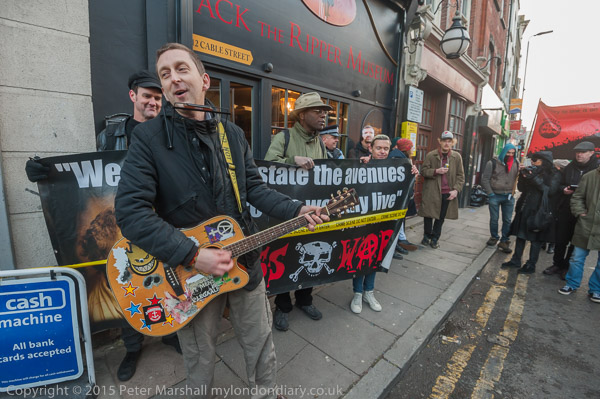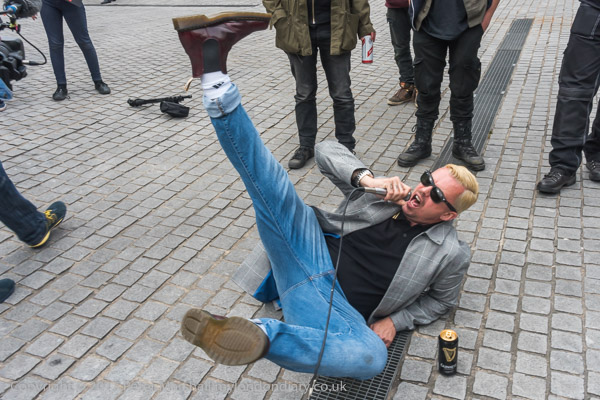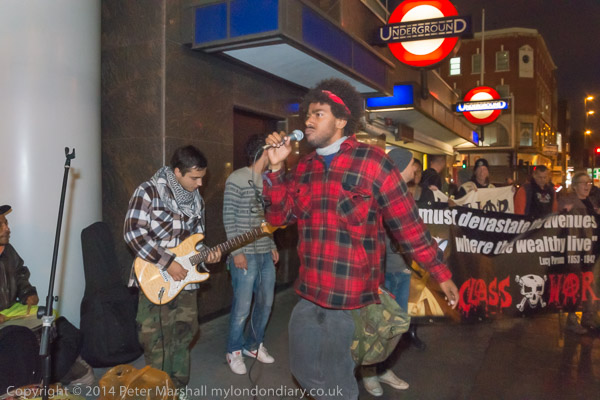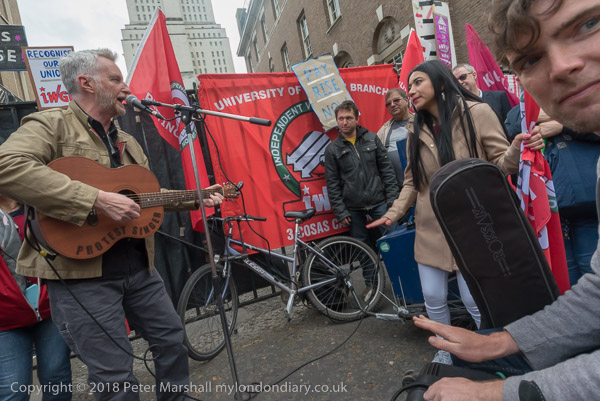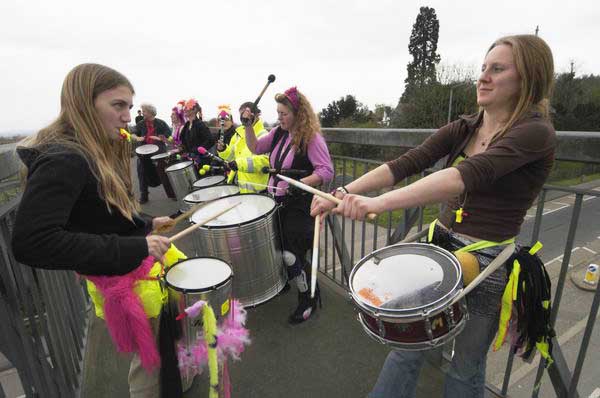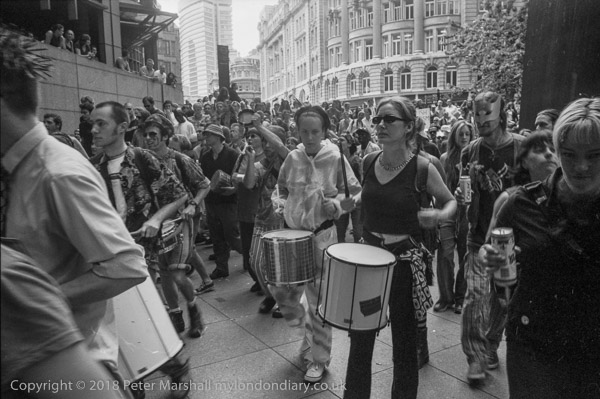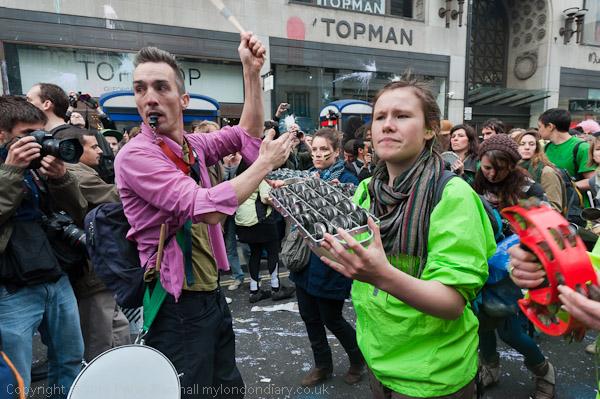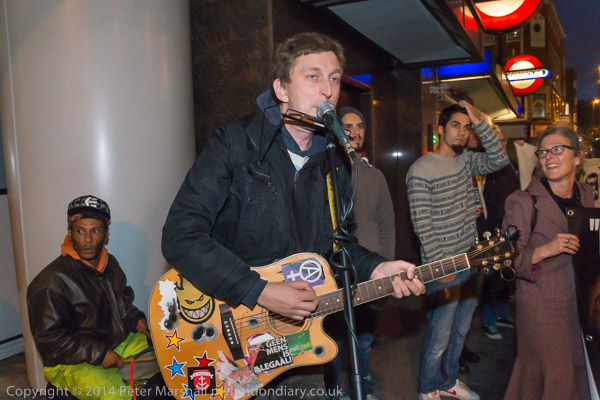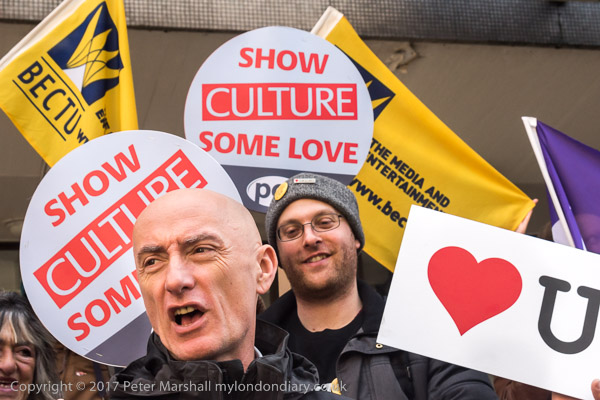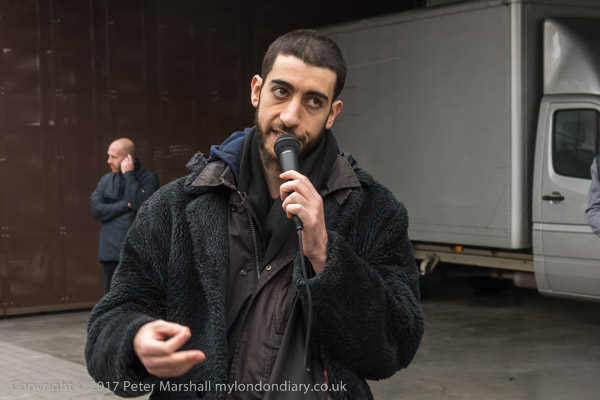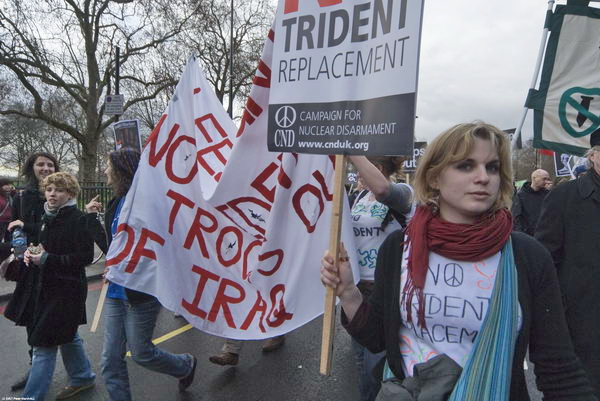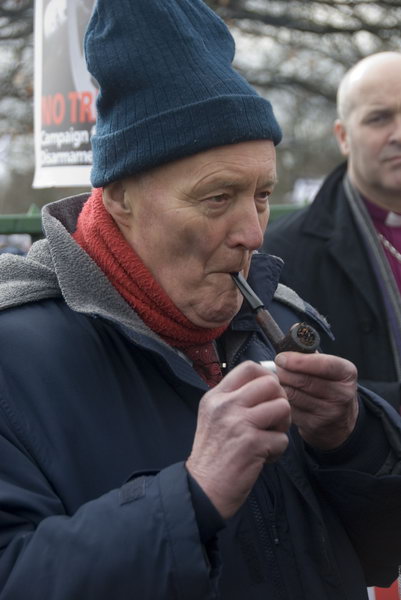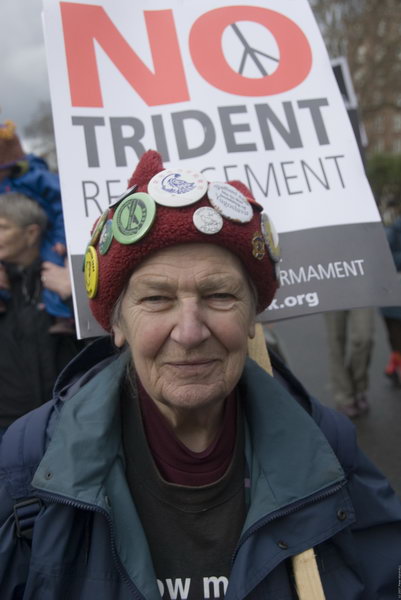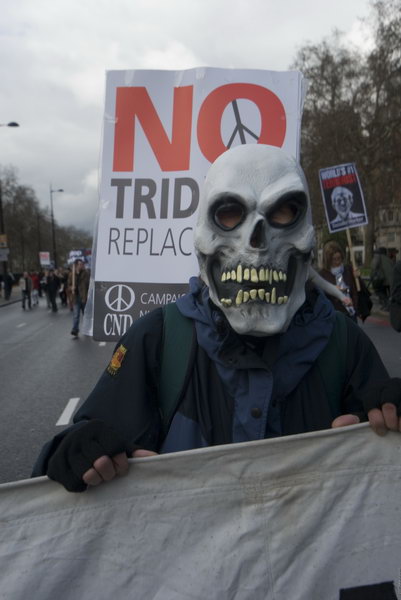Stop Trident, Troops out of Iraq: On Saturday 24th February 2007 I photographed the march and rally organised by Stop The War, The Campaign For Nuclear Disarmament and The British Muslim Initiative to call for British troops to be brought back from Iraq and for an end to the deployment of Trident nuclear missiles and their proposed expensive replacement.
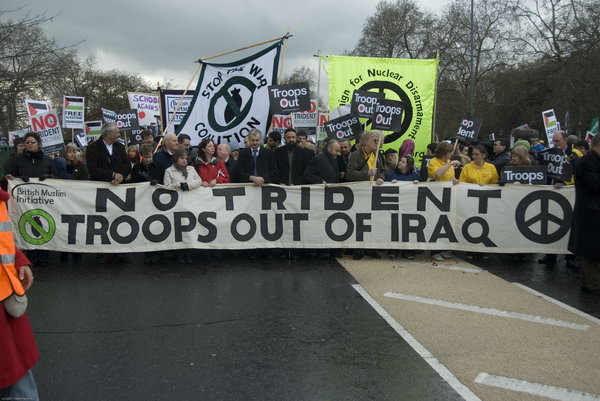
The marchers met in Hyde Park around Speakers’ Corner and marched to a rally in Trafalgar Square.
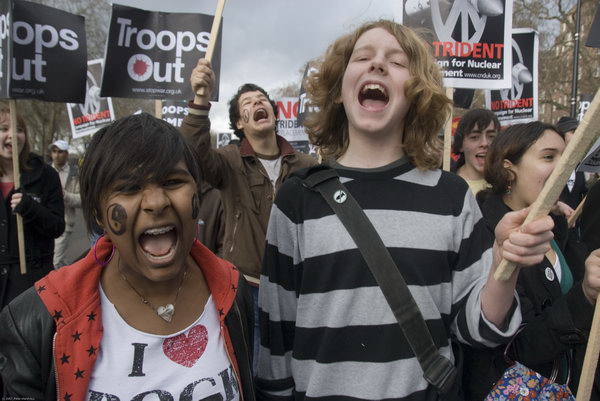
I wrote a slightly long text to go with the pictures which I’ll repeat in a more normal form below with normal capitalisation. It includes an explanation of how I arrived at an rough estimate for the numbers taking part for this and other protests – often very significantly greater than that then given by the police to the press and usually rather less than that of the organisers.
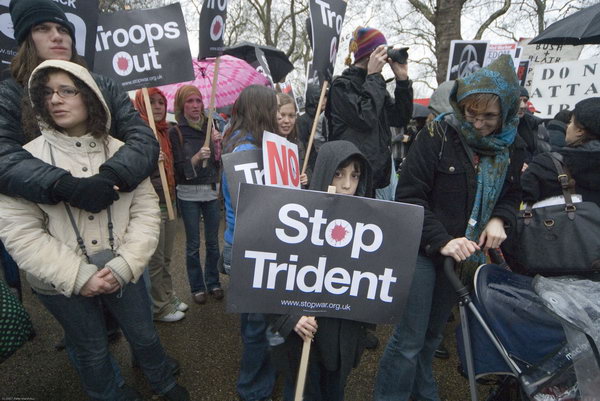
Stop Trident, Troops out of Iraq – Stop the War/CND/BMI Demo
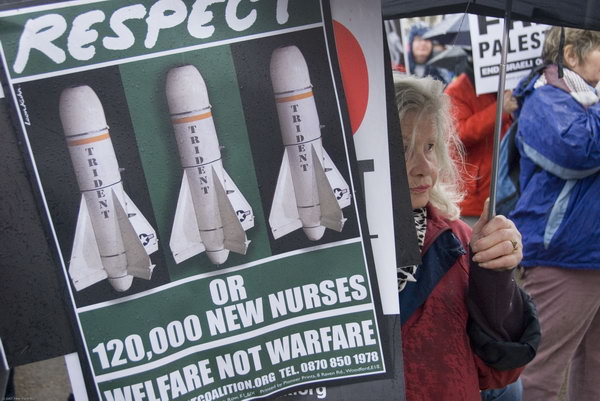
I’ve for many years been opposed to the so-called independent British nuclear weapons. Even at the height of the Cold War they were never credible as an independent deterrent. If they have ever had any justification it was that they made the USA feel less guilty, although American guilt at its huge nuclear arsenal and at being the only country ever to have used nuclear weapons has always been an incredibly stunted growth.
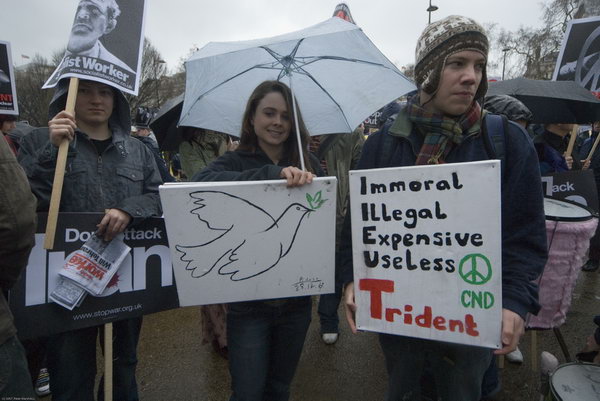
I was also firmly against the invasion of Iraq. It was always clear to those who didn’t want to be deluded that the so-called ‘intelligence’ on weapons of mass destruction was laughable.
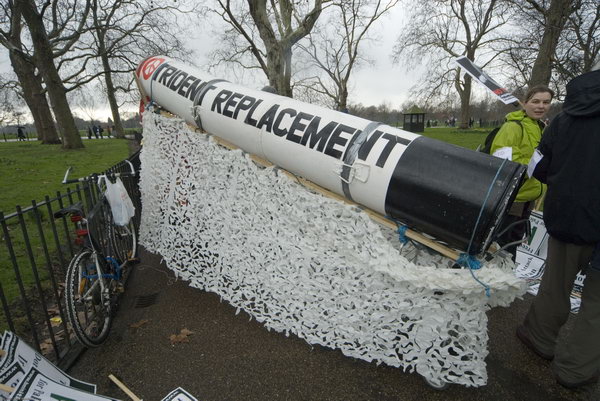
Blair was either a liar or a fool as he misled a minority of the British people and a majority of their MPs. Or most probably both. (Saddam may also have been deluded and certainly was an evil dictator, but we had long failed those who tried to oppose him.) The invasion was criminal, but the lack of planning for the occupation that inevitably followed even more so.
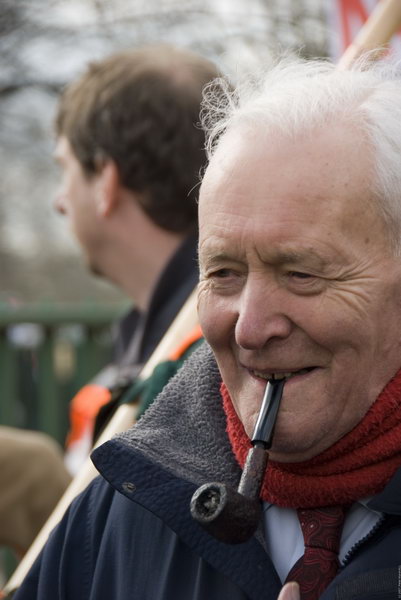
So Saturday’s march, organised by Stop The War, The Campaign For Nuclear Disarmament and The British Muslim Initiative against both of these had my whole-hearted support (although i would have photographed it anyway.)

It is hard to be sure of numbers on events such as this, but the police estimate is laughable (the first figure they gave to the press, of 4000, was totally ludicrous.)

It took around 90 minutes for the march to pass me in Park Lane, and although there were a few short gaps, there were plenty of times when the wide street was too crowded to really take pictures. My estimate of the average number of people passing me per minute is 200-600, giving a total of 18,000-50,000 marchers from Hyde Park.

You can add to these figures perhaps another 10-20% who for various reasons go direct to the rally or join the march closer to Trafalgar Square, giving a total that could be between 20,000 and 60,000.
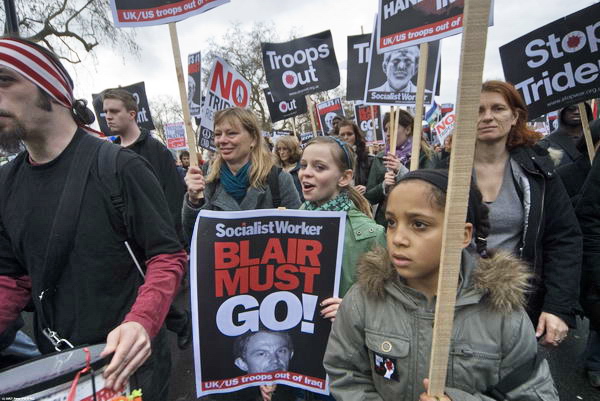
After photographing the marchers, I took the tube to get to the rally in time to hear some of the speeches (marchers were still arriving almost up to the end of the rally.) As I arrived, there were many people already leaving, and the square was filled, with people spilling out at both the northeast and northwest corners.

I wasn’t there in time to hear Ken Livingstone, MPs John Mcdonnell and John Trickett, MEPs Caroline Lucas and Jill Evans, playwright David Edgar, Paul Mackney of the University & College Union or some of the other speakers, but I did hear the co-chair of the US ‘United For Peace And Justice’ Judith Leblanc, Lindsey German, George Galloway, and Augusto Montiel, a Venezuelan MP, as well as several Muslim speakers, trade unionists and singers including Julie Felix. I didn’t catch all of their names.
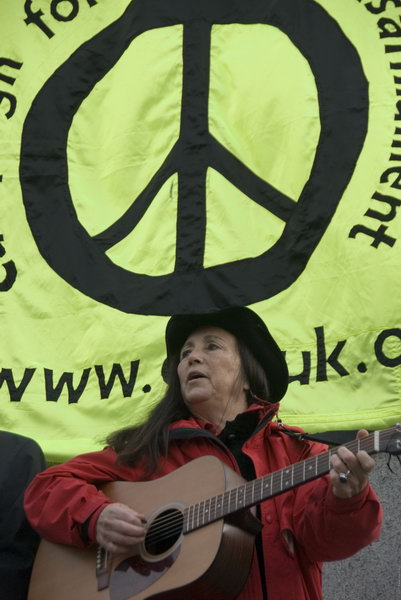
For me the most moving speech was from Rose Gentle, whose son Gordon was killed in Iraq. Together with others from ‘military families against the war’ she is camping out over the weekend opposite Downing Street.

Six of her colleagues stood with her as a group while she addressed the crowd, lending their support. She was simple, direct, emotional.
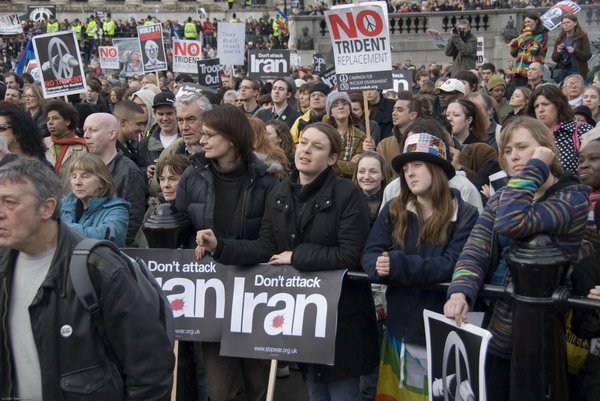
The final speaker (I think) was Jeremy Corbyn, MP, and it started to rain again as he began speaking, so I headed for the Underground and home.
Many – too many – more pictures on My London Diary.
Flickr – Facebook – My London Diary – Hull Photos – Lea Valley – Paris
London’s Industrial Heritage – London Photos
All photographs on this page are copyright © Peter Marshall.
Contact me to buy prints or licence to reproduce.
